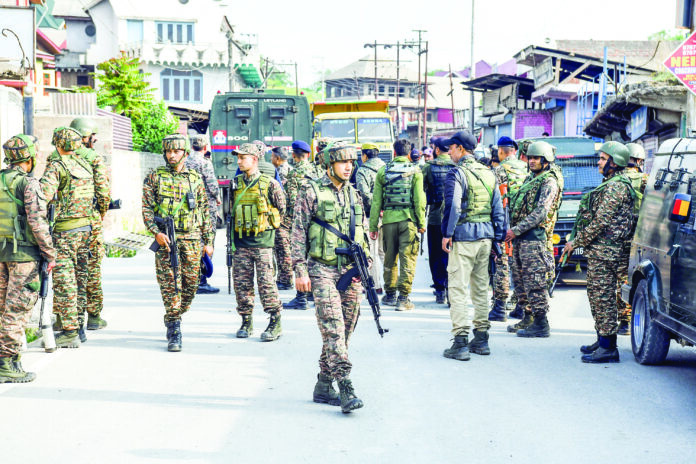Militarily, strategically and politically, Operation Sindoor was undoubtedly a thumping success for the nation. But it will also be remembered for the deft planning that preceded it as well as the flawless manner in which it was implemented. The whole operation, points out Walter Ladwig, a leading expert on South Asian security studies at King’s College London, was a lesson in restraint, precision and professional competence. International security scholars, he pointed out, will be studying the results of this three-day conflict between the two nuclear powers for years to come.
The facts speak for themselves: the operation may have been formally launched only on the night of 6-7 May. Preparations for it, in actual fact, started on 22 April itself after four terrorists—with the backing of Pakistan—brutally killed 26 tourists in cold blood in front of their families. Prime Minister Modi cut short his state visit to Saudi Arabia and GOI took a slew of measures immediately: it downgraded the status of diplomatic ties with Pakistan, suspended visas of all Pakistani nationals in India (23 April) and sought the support of key ambassadors and high commissioners (24 April). Opposition leaders extended their support in an all-party meeting (24 April), and the Ministry of Information and Broadcasting banned Pakistani media and YouTubers spreading misinformation (28 April). On 30 April, the Government gave a free hand to its armed forces to plan and execute the military response.
What followed is now history: Two eminent war scholars—Tim Cook and John Spencer—point out that India was fully able to fulfil its objectives: it seriously damaged Pakistan’s terrorist infrastructure, demonstrated its military dominance, generated a much higher level of deterrence against future attacks, and also unveiled a new national security doctrine that called out the Pakistani nuclear bluff. Finally, it also imposed heavy costs (estimated by some at about US$7 billion) on Pakistan for its misadventure.
During the conflict, however, point out many experts, India failed to convey its narrative effectively, particularly to the west. Indian spokespersons were accurate and responsible but not timely. Pakistan’s spokespersons, on the other hand were just the opposite—timely but inaccurate.
Some of our own Opposition leaders ask why India called off the operation when it could easily have gone for the kill. The short answer to this question is that to bring Pakistan to its knees was never the objective of the operation. To call its nuclear bluff and impose heavy costs on it for sponsoring terrorist operations in India was, and this was achieved.
At the moment we are in the midst of a pause in hostilities. Going forward too, Government may not favour a prolonged conflict. This is because of the basic economics of war. In any such conflict, demand for goods and services increases, so does the demand for money. Interest rates rise. This discourages both private consumption and investment. Since the increased demand cannot easily be matched by a corresponding increase in supply of goods and services, prices rise, inflation increases, government is compelled to borrow more and public debt rises. This can hardly be a scenario which any government would like to face as it would ultimately introduce uncertainty, reduce welfare spending, adversely impact FDI, affect growth, and adversely impact the economic well-being of the nation.
However, if for reasons of national security, conflict is inevitable, let it be like Operation Sindoor—precise, short, swift and decisive. That would be possible if we remain vigilant, avoid jingoism, step up our defence preparedness and procurement, and continue our focus on defence R and D.
The writer was Chief Commissioner of Income-Tax and is the author of the “Moral Compass: Finding Balance and Purpose in an Imperfect World”, Harper Collins India, 2022.








